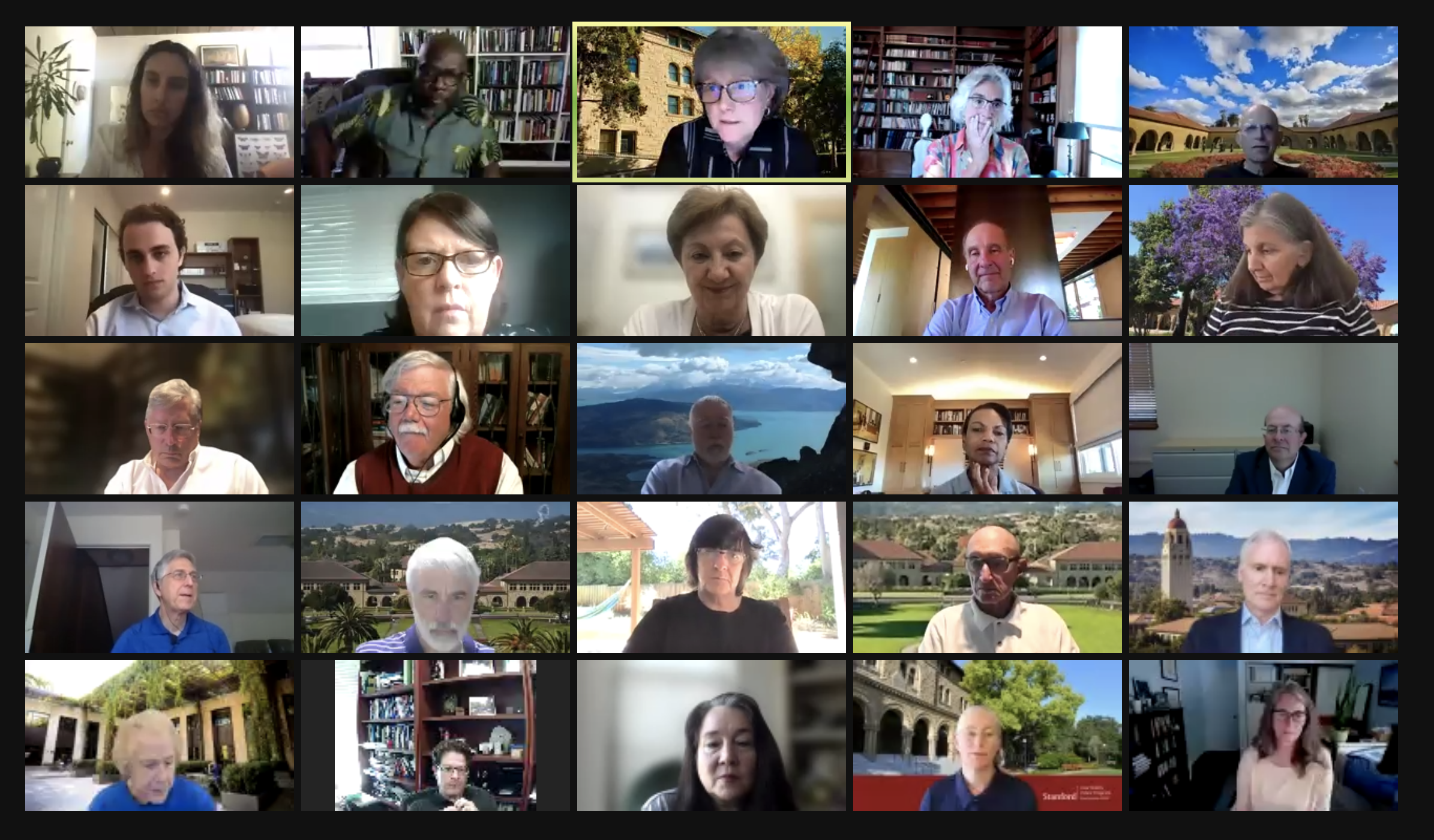A Faculty Senate committee is calling on Stanford to expand University representation for faculty and staff members who face legal action. The request comes as questions over the limits on free speech and academic freedom on campus remain largely unanswered.
Faculty members said such support would be largely symbolic, but especially after a year of controversy, having the University’s backing would suggest a strong commitment to safeguarding academic freedom.
Also during its final meeting of the term on Thursday, the Senate rejected a measure to exempt additional transfer units for the current academic year and heard a reflection by Provost Persis Drell in which she acknowledged decentralization issues at Stanford.
Legal threats from Hoover Institution senior fellow Scott Atlas in October of last year prompted the committee’s report to faculty senators. Atlas threatened to file a defamation lawsuit against more than 100 Stanford physicians and researchers who had condemned his controversial positions on COVID-19 mitigation in a September open letter to the School of Medicine faculty.
When Philip Pizzo, the former dean of the School of Medicine and a signatory of the open letter, requested that the University provide legal representation, the Office of the General Counsel declined to do so.
While the Senate did not vote on the matter, senators spoke in favor of expanding the availability of legal counsel to Stanford faculty members. The current 19-word policy provides only the bare minimum protection required by state law. But members of the committee said that, when employees face lawsuits, Stanford needs to play a more active role in protecting academic freedom and the University’s core values.
At the time Atlas threatened legal action, the signatories were told by University lawyers, in consultation with the president and provost, that they had spoken on their own and could not be represented by Stanford, spurring many to retain outside counsel.
Though a lawsuit never materialized, faculty members contended that the affiliates were speaking as faculty in the area of their academic expertise.
According to law professor and committee lead Hank Greely, the University overlooked the broader context of the letter in its handling of the situation.
“We think that, in this case, not enough weight was given to the value of academic freedom in a particular context of something that is of pressing social importance: the questions of the responses to the pandemic coming from faculty who had expertise in the very issue,” Greely explained.
The committee recommended that the policy be amended to protect faculty when “appropriate in defense of academic freedom or other important values of the university.” It also called for Stanford officials to enumerate the specific instances in which employees would be eligible for legal counsel through the University.
Psychiatry and behavioral sciences professor David Spiegel said the committee’s recommendations are critical in “elevating discourse, advancing inclusivity, and ensuring that Stanford is a place where students and faculty do not live in fear that expressing your views will put them in harm’s way.”
Senate rejects exemption for additional transfer units
In a rare move, the Faculty Senate rejected a proposal by the Committee on Undergraduate Standards and Policy (C-USP) to exempt an additional 15 transfer units for undergraduates during the 2020-21 academic year. A plurality of senators voted against the measure with 14% abstaining.
The proposed policy was the result of extensive deliberations between the Associated Students of Stanford University (ASSU) and the Registrar’s Office to provide flexibility to students, in light of the pandemic’s impact on the quality of education and graduation timeline. The Undergraduate Senate bill requesting the exemption was passed in November.
The University’s current transfer policies allow for up to 45 quarter units of transfer credit. At the onset of the pandemic, the Faculty Senate approved policies that exempted units obtained during spring 2020 from transfer credit limits.
But the current proposal to exempt 15 additional units generated confusion. Some senators wondered if the policy was futile because no student has reported exceeding the transfer unit cap. Several spoke against the proposal, citing a lack of reflection and evaluation. “It’s good to have a policy of flexibility, but you need a problem” to solve, Faculty Senate Chair Judith Goldstein said.
“It’s a Stanford education,” Goldstein added. “I don’t really understand where the Stanford part ends and the flexibility begins.”
Although the proposal was not adopted, Goldstein said that the issue could be reconsidered by the Senate in the future.
The Senate, however, passed two measures that revised academic policies for research conduct and graduate students. As the pandemic subsides, the University is removing certain exemptions granted to students, including ending the two-quarter extension for graduate students to complete their degrees.
But the Senate also codified lessons learned from the pandemic, approving new rules that allow for remote dissertation presentations under certain circumstances and transfer credits for advanced degree candidates with the approval of the local department.
Provost acknowledges need to address decentralization
A distinctive feature of Stanford governance is the localized control of decision-making within individual units. While decentralization may offer some advantages, it has also posed challenges for students, faculty and staff alike. These challenges were exacerbated by the pandemic, Provost Persis Drell acknowledged in her remarks to outgoing senators.
“I think that we might not have the right balance between what is centralized and what is decentralized at Stanford,” Drell said. “During the pandemic, the degree of decentralization that we have in our operational activities was a real challenge when it came to crisis management.”
Drell said that she is working alongside President Marc Tessier-Lavigne and senior leadership to address the issue of decentralization. But she added that decisions about teaching and research will remain at the level of individual faculty members.
